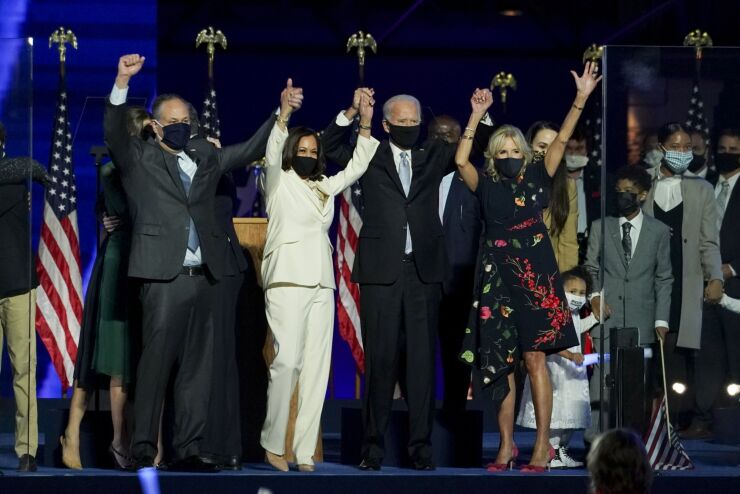For many employees who are parents or caring for a sick or elderly loved one, finding a way to provide support while focusing on work can be a challenge. Even before the coronavirus hit the U.S. employees were struggling with this issue, which has only been exacerbated by the current crisis.
The number of Americans providing unpaid care has increased to 53 million in 2020, from 43.5 million in 2015, according to a study from the National Alliance for Caregiving and AARP. Family caregivers often forgo their own healthcare needs as they make their loved one the top priority. Indeed, 21% of caregivers report that their own health is poor and 23% say caregiving has made their own health worse. A further 45% have had at least one major impact to their finances as a result of their responsibilities.
Over the summer, when he was campaigning for the democratic nomination, President-elect
“President-elect Joe Biden will start his term with a deeply divided country, raging pandemic, and uncertainty in the economy,” says Lindsay Jurist-Rosner, the CEO of caregiving benefit provider Wellthy. “Biden's care plan, which will provide child and elder care support infrastructure is timely and critical. By investing in homecare workers and childcare centers, working families will have the support they need to stay in the workforce.”
Biden’s plan would be financed by taxes on real-estate investors with incomes of more than $400,000, and by a tax increase on high-income earners. The plan would eliminate the waiting list for home and community services under Medicaid, and would offer low-income and middle-class families a tax credit of as much as $8,000 to help pay for child care.
Moreover, the plan would increase pay for caregivers and early childhood educators, while also calling for universal preschool for three- and four-year-olds. Biden also intends to give caregivers and early childhood educators a pay increase.
“We need to make high-quality childcare affordable and accessible. As president, I'll give every three and four- year-old access to free, high-quality preschool,” Biden tweeted on July 21, 2020. “And low- to middle-income families won’t spend more than 7% of their income on quality care for children under age five.”
Now that Biden is set to become the 46th president of the United States, he and running mate Kamala Harris, the vice president-elect and the first woman and person of color to hold the office, can put this plan into action. A Biden-Harris administration can have a significant impact on caregiving in the U.S.
Biden’s plan highlights how the COVID-19 pandemic has intensified the caregiver crisis while also acknowledging the fact that many older Americans prefer to spend their elderly years at home, says Dave Jacobs, co-CEO of Homethrive, a caregiver services and benefits provider. The threat of COVID has forced many Americans to pull their loved ones from assisted living facilities and into their own homes, where they are now overwhelmed by their family and professional responsibilities.
Eldercare benefits are still uncommon, according to data from SHRM. About 10% or less of survey respondents say their employer has any type of eldercare benefit. The most common eldercare benefit, available in 10% of organizations, is eldercare referral services.
Caregiving for an aging loved one often falls on women and their careers are most at risk to be affected during the pandemic. More than one in four women are considering downsizing their careers or leaving the workforce all together in order to focus on caregiving, according to McKinsey’s 2020 Women in the Workplace report.
“The Biden plan has many much needed benefits for family caregivers such as paid leave and tax credits,” Jacobs says. “Yet, American workers will still want a caregiver coordination benefit from their employer, because figuring out which services their loved one needs and coordinating these services can be time consuming and confusing. Employers should still be incentivized to offer elder care benefits — like many do for childcare — to help employees reduce stress and increase productivity at work.”






